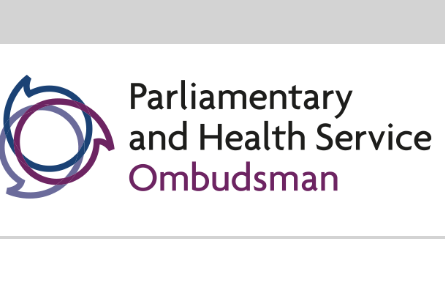The Charity Commission has been criticised by the Parliamentary and Health Service Ombudsman (PHSO) for failures in its handling of a sexual exploitation complaint made by a charity volunteer.
Laura Hall, who has waived her right to anonymity, alerted the Commission in 2019 to her concerns about the conduct of a trustee.
She told the charity regulator that the trustee, who is a former chair of the charity, entered into an “inappropriate relationship” with her which was allegedly “abusive” and had been reported to the police.
But the charity regulator decided it did not have sufficient evidence to disqualify the trustee at the charity, which had said it intended to wind up but later changed its mind.
After feeling “institutionally betrayed by the Commission”, Hall took the matter to the PHSO Rebecca Hilsenrath, who found a raft of failures by the charity regulator in its handling of the case.
“It made repeated commitments to me to deregister the charity and said it would do all it could to disable the trustee from acting in the name of charity in future, but the Commission dramatically changed regulatory course,” said Hall.
“This left me feeling incredibly vulnerable and confused.”
She added that she is “disappointed at the lack of contrition from the Commission”.
“It has not set right its failings, and I have fears for the ongoing risks in my personal case, but also how that leads into a wider institutional cultural problem.”
The Ombudsman found particular failings in how the Commission communicated with Hall and that “it could not show that it had followed its safeguarding and risk assessment guidance”.
“The Commission failed to give Lara clear information throughout the handling of her complaint and did not explain why it decided not to proceed with a course of action it had previously assured her it was going to take,” said the PHSO.
Hilsenrath has recommended that the Commission apologise to Hall, provide her with financial compensation and “takes action to stop the same failures being repeated”.
This includes “reviewing its handling of her case and its risk assessment guidance” as well as “obtaining an independent review of its communication with complainants”.
She said: “Our investigation uncovered a number of failings around the Charity Commission’s handling of serious safeguarding concerns.
“It is important that the Commission apologises for its mistakes and reassures Lara that it will put things right.
“The purpose of our investigations is to encourage learning and service improvement and we invite the Commission to work with us in this spirit to ensure that nobody else has to endure a similar experience in the future.”
Hall added: “If the Commission doesn’t comply, Parliament must intervene to hold it to account and ensure that we have a watchdog that is accountable and answerable.
“Vulnerable people should feel safe reporting their concerns and they should feel their complaints are validly listened to.”
A Charity Commission spokeswoman said: “We accept that there are important lessons for us to learn from this case, including in the way in which we communicate with those who raise concerns about charities.
She says the Commission accepts the ombudsman's recommendations and have issued an apology to Hall "for the shortcomings in the way we communicated with her".
"We are now working to implement the Ombudsman’s recommendations in this case," she added,
Latest News
-
Church of England charities warned over safeguarding failures
-
Road crash victim charity closes suddenly amid ‘significant shortfall in expected revenue’
-
Monday movers - 19 January
-
Leadership diaries: Inside the leadership of a growing education charity
-
Funders placing ‘concerning’ expectations on charities in poorer areas
-
Senior St John’s Ambulance staffer takes top role at digital inclusion charity
Charity Times video Q&A: In conversation with Hilda Hayo, CEO of Dementia UK
Charity Times editor, Lauren Weymouth, is joined by Dementia UK CEO, Hilda Hayo to discuss why the charity receives such high workplace satisfaction results, what a positive working culture looks like and the importance of lived experience among staff. The pair talk about challenges facing the charity, the impact felt by the pandemic and how it's striving to overcome obstacles and continue to be a highly impactful organisation for anybody affected by dementia.
Charity Times Awards 2023
Mitigating risk and reducing claims

The cost-of-living crisis is impacting charities in a number of ways, including the risks they take. Endsleigh Insurance’s* senior risk management consultant Scott Crichton joins Charity Times to discuss the ramifications of prioritising certain types of risk over others, the financial implications risk can have if not managed properly, and tips for charities to help manage those risks.
* Coming soon… Howden, the new name for Endsleigh.
* Coming soon… Howden, the new name for Endsleigh.
Better Society

© 2021 Perspective Publishing Privacy & Cookies













Recent Stories